Many people think that getting a Great Dane as a guard dog is a great idea. After all, they are big and imposing, and they look like they would be great at protecting their home and family. However, there are several reasons why you should not get a Great Dane as a guard dog. In fact, in this blog post, we will discuss 8 of them!



One: Great Dane as a Guard Dog AND Good Family Dogs?
Great Danes are well known for being magnificent, loyal family guard dogs.
These large and sturdy dogs are naturally protective of those they love, making them great companions for family members both young and old. Whether lounging by your side on the couch or running around outside with you or your kids, Great Danes are always happy to be spending time with their family.
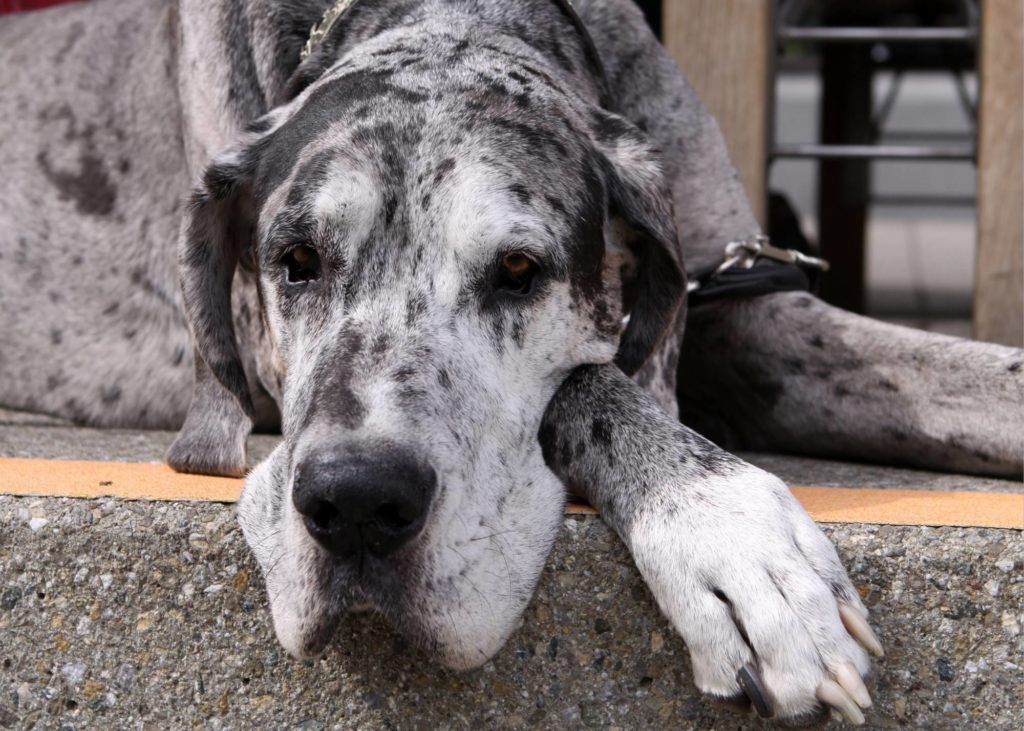
Will My Great Dane Dogs Protect My Family?
As such, they make great family dogs that protect and care for those they love most. However, being willing to protect their family members and household members does not make them a dog that is able to serve as a good guard dog.

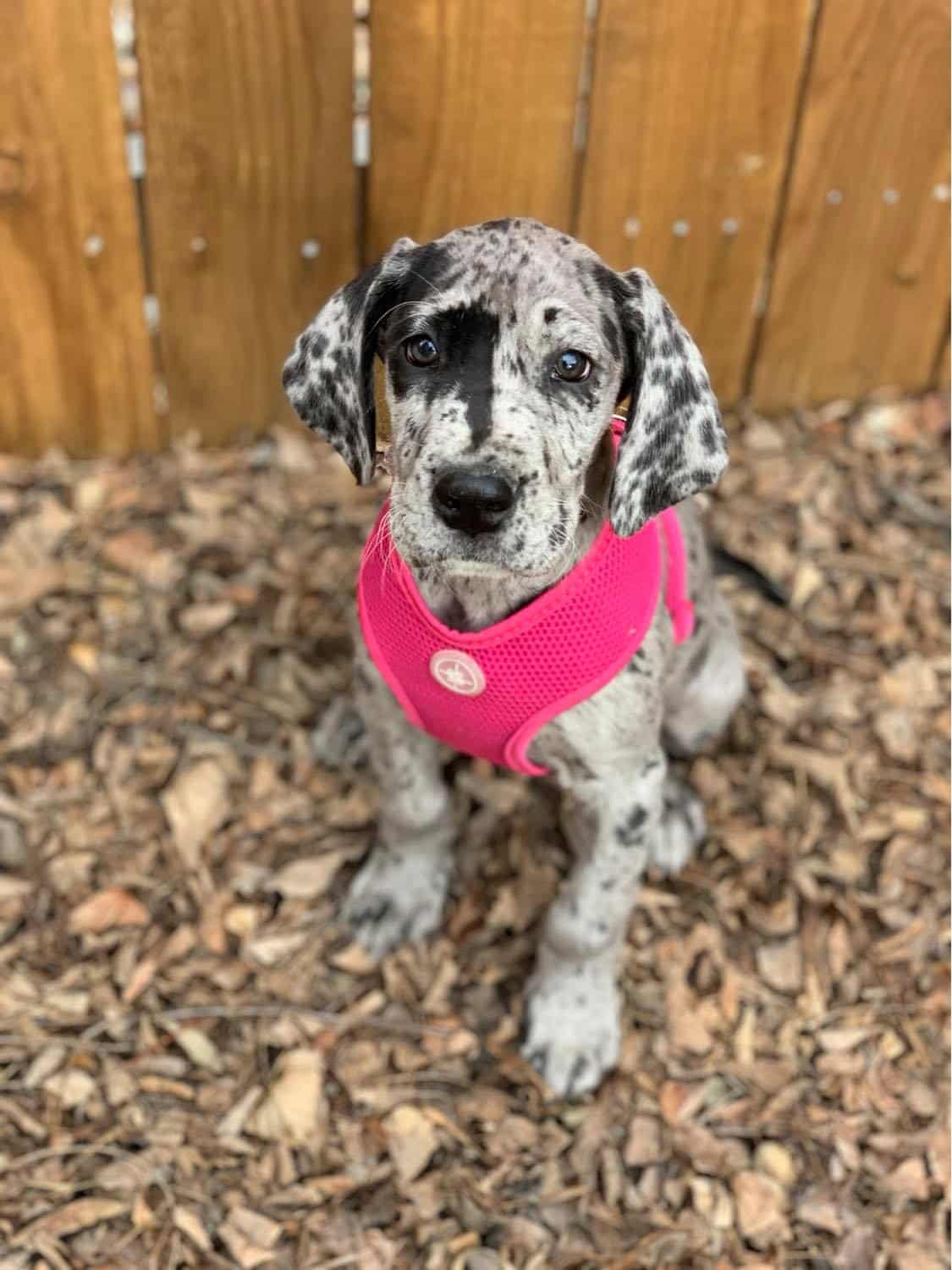
With their big hearts and even bigger personalities as one important trait, these dogs serve better as pets to your family from household potential threats in certain situations than as guard dogs which may be trained to protect / be aggressive.
Of almost all dog breeds, Great Danes make good family dogs, but as a family guard dog it is an entirely different story.
Two: Great Danes Are Not That Easy to Train
Great Danes are extremely smart dogs who, with loving and supportive dog owners, can thrive in any situation.
As a matter of fact, there are many Great Danes who undergo Therapy Training, or become trained to be Service Dogs.
What Makes a Great Dane Harder To Train Than Other Working Dogs?
However, training the Dane breed as a whole is not as easy as other breeds or animals. Great Danes are not as driven to work and train as a breed of dog who is extremely food motivated and interested in training for every single piece of food it receives.
Great guard dogs require extreme intensity in their training and self – control, which is just not something that a Great Dane has in comparison to other pets or dogs.
After all, you never know when your Great Dane guard dog might sense a threat, perk their ears up in an attempt to protect its home, children and owner, and all of the sudden turn into a dopey, clumsy, large dog that accidentally trips over the couch or walks into the wall on it’s way to attack its intruder.
After all, even the most protective Great Dane is simply not as regal as a good guard dog.
Three: Great Danes Are Not Aggressive
Additionally, since Great Danes are not a naturally aggressive dog, it is difficult to teach them to become one.
Great Danes are known for the reputation of ‘Gentle Giants’, something that not all dogs can live up to.



You happened to choose a dog breed that (with good genetics) has a calm temperament. Although they are massive size, they are generally great with children, other pets, and calm / gentle.
We often hear of aggressive Great Danes, in which owners wonder or assume that their dog is acting as a guard dog. However, we have news for you. As a friend, we can tell you confidently that your Dane is *most likely* not trying to be protective when he is barking or acting aggressive.
Instead, your Dane is exhibiting signs of fear.
Euro Danes: A Big, Droopy Problem
Puppy Training: 5 Mistakes in Training
14 Exciting Things about Black Great Danes
Most Great Danes are NOT trying to protect their owners when they demonstrate ‘protective’ behavior. Owners should recognize that their dog is indeed working to protect ITSELF. In turn, their pet needs to be put in intense training with a trained professional, or speak with a licensed veterinarian.
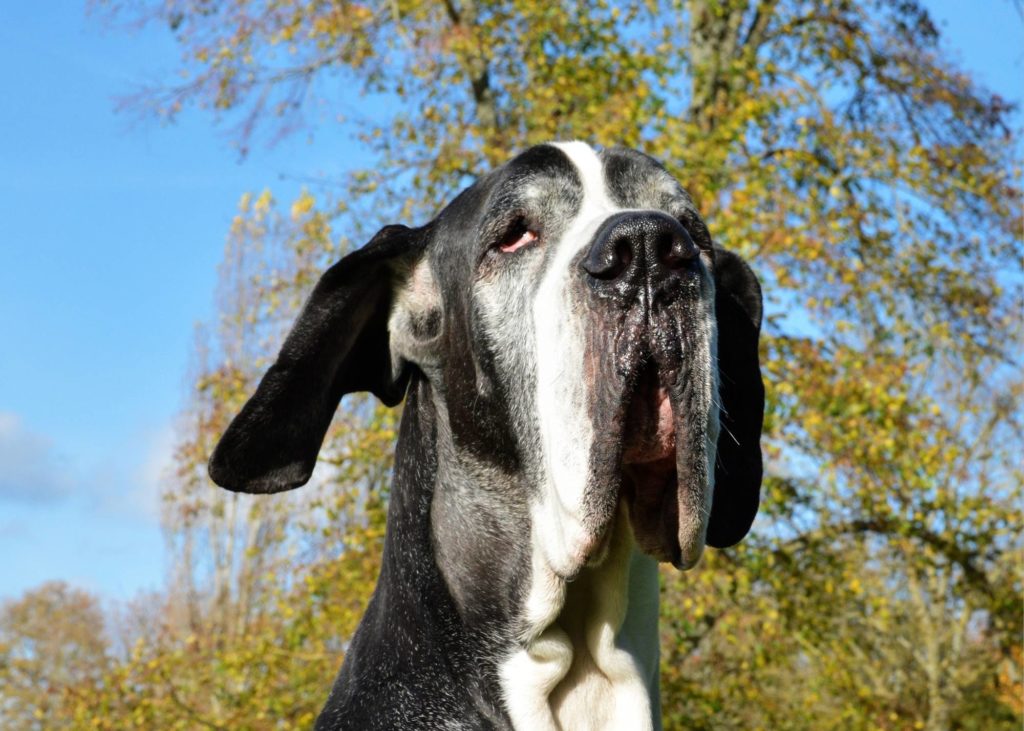
My Great Dane is Aggressive
If your Great Dane is aggressive, shows signs that it wants to attack, or barks at new friends, dogs or sounds, you should consider getting them trained.
A dog that is not properly trained can be a potential threat and danger to themselves, you and your family, as well as new dogs.
Reach out to a professional for help if you feel that your dog may need it.
We are advocates of responsible owners who train their dogs with ethical e collar training.
My Puppy Seems Wants to Protect Me and My Other Animals
A puppy who seems ‘protective’ of its owner, itself, or other pets in the household is NOT being brave.
Puppies and dogs alike should be socialized from a young age to act calm, gentle and neutral around all new experiences. Puppy socialization does NOT always mean getting your Great Dane around other dogs.
We have a guide with an abundance of ideas for how owners can train and socialize their dane pups to remain calm and well-mannered in an abundance of life situations.


Four: Do Not Mistake Barking as an Attempt to Protect
For the most part, any dog that sees a ‘potential threat’ such as a rabbit, squirrel, mailman, dogs walking past the front door, will begin to bark.
When other dogs walk past, or your dog sees something exciting out the window, they may naturally bark.
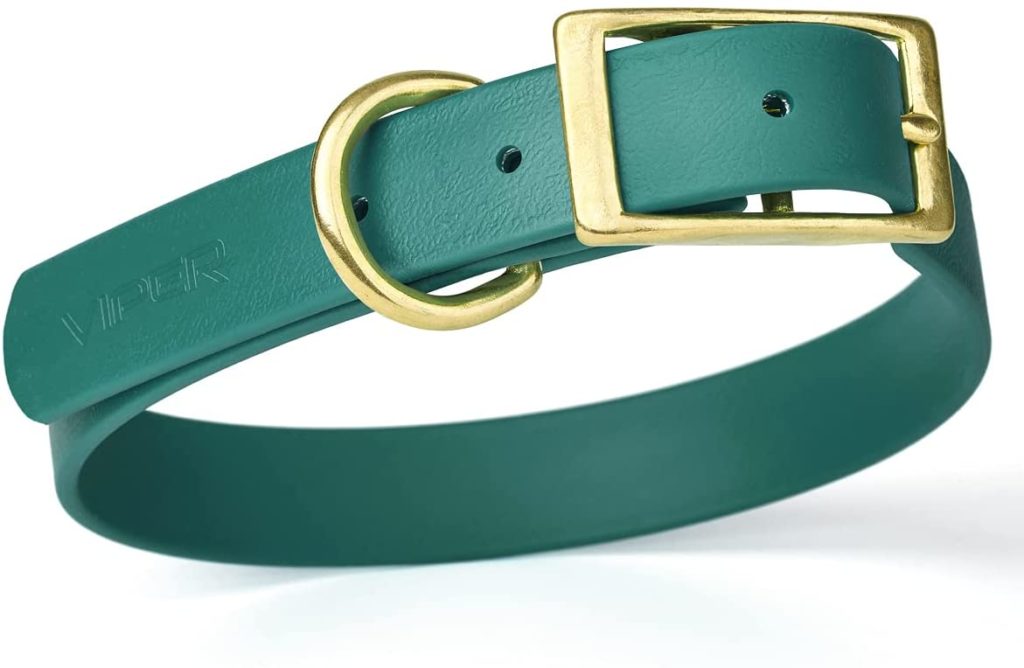
With positive reinforcement and consistent training, an owner can work to help their dane not to bark at distractions like dogs outside of the window.
Is My Great Dane Being Protective When It Barks?
This ‘occasional’ bark can be a somewhat normal behavior in any pet, however can quickly turn into something very negative if not monitored closely by owners with training.
So, yes, however annoying the occasional bark may be for a pet owner, the problem lies when your dog begins to bark constantly, lunge, or give off an ‘attack’ body language.
If you notice your dog start to bark more at distractions like other dogs walking past, you should remind yourself that your Great Dane is STILL not trying to be a ‘guard dog’.
What is the Difference Between a Guard Dog and a Scared Dog?
On the surface, a scared dog might actually look like a guard dog to an untrained eye. To owners who may not know, many characteristics may appear the same in dogs who are scared to guard dogs.
Let’s examine what it might look like to see the behavior of guard dogs vs. the behavior of a dog who is scared.
Good Guard Dogs Behavior
Good guard dogs have had extensive training to know when to bark and when not to, as well as how to properly attack an intruder if necessary.
In addition, a good guard dog will be under the control of its handler at all times, while a scared dog may be more difficult to handle and manage.
A guard dog will appear very calm. Handlers of guard dogs will always watch their dogs, but not react as they know they will be able to command them to listen at any time. Guard dogs are generally are highly equipped dogs with genetics that make good guard dogs.
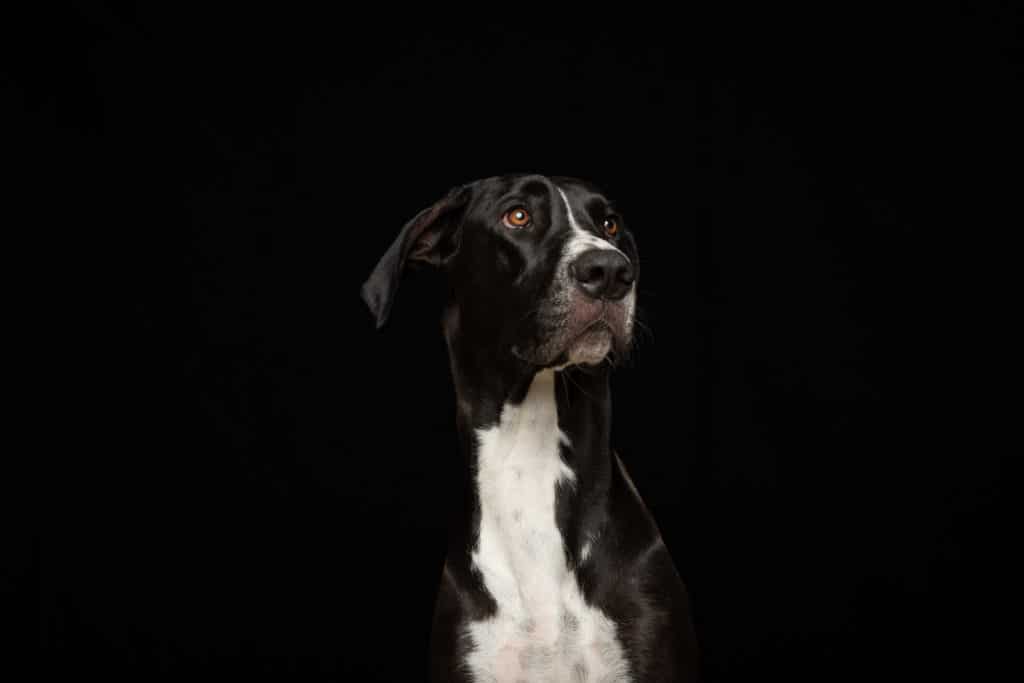
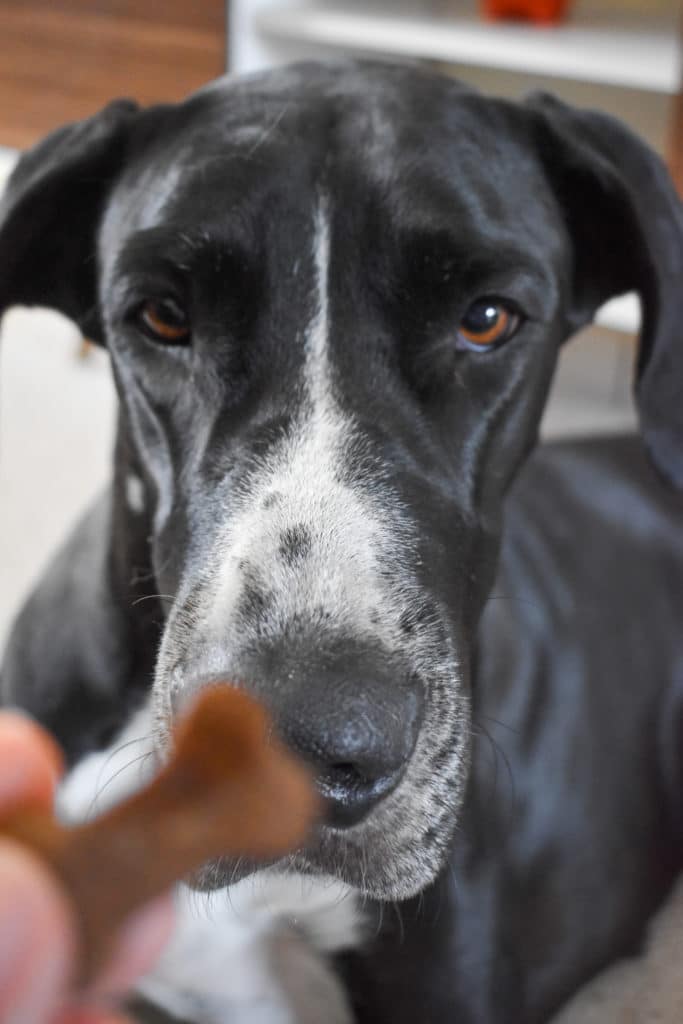
Scared Dogs Behavior
Scared dogs generally have not had any training, and will often bark excessively at anything that may look or sound ‘threatening’, regardless of whether it actually is or not.
Pet parents of dogs who are timid, nervous, or scared might think that they own protective dogs and try to make their dog into a ‘guard dog’. They might even try to tell others that their Great Dane is a guard dog for the purpose of finding an excuse for its behavior.


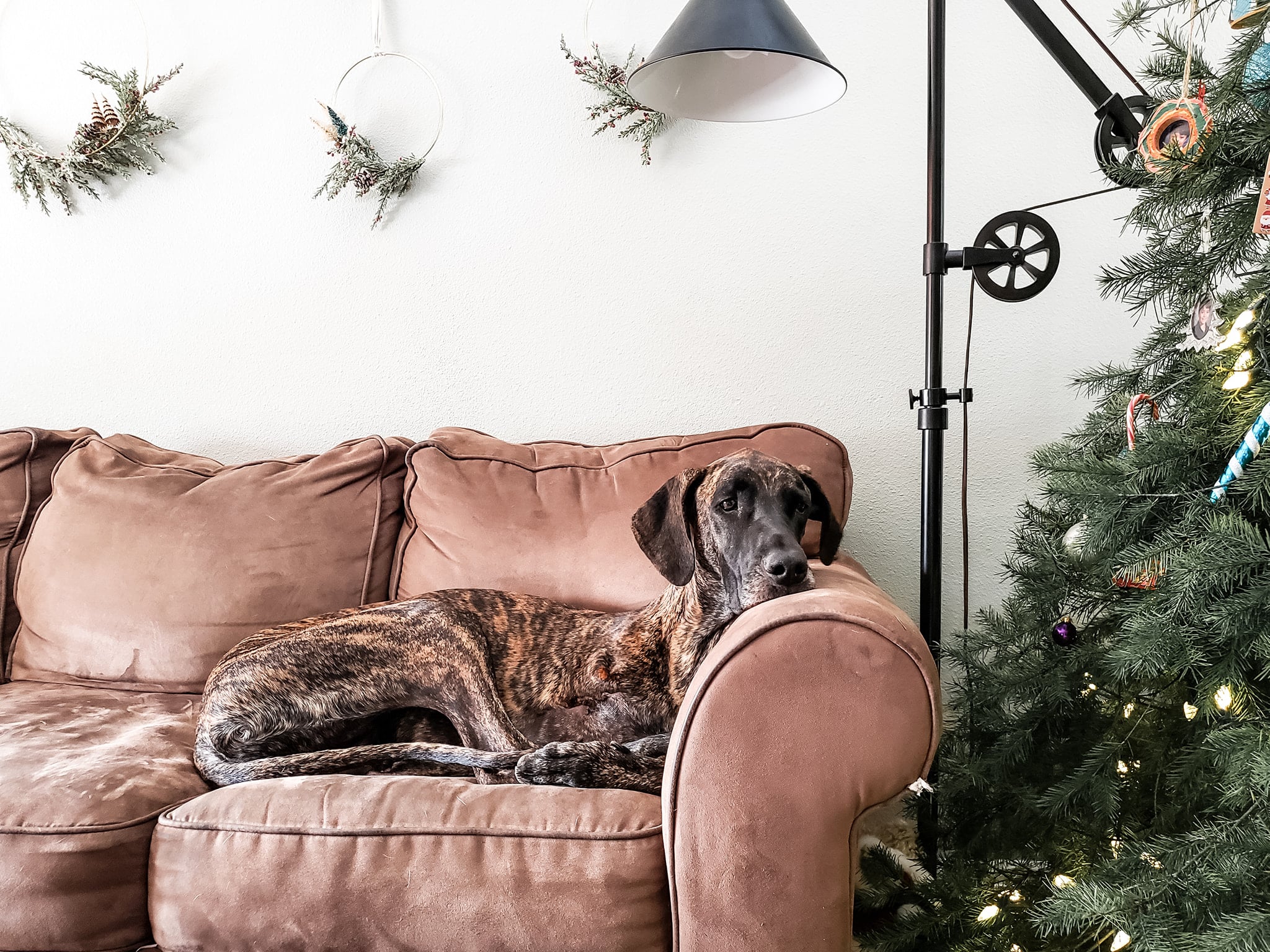
However, if an owner does not have control over its working dogs at all times, a scared dog becomes a major danger to society: humans, children, other dogs, etc.
Know the Difference Between Fear and a Highly Trained Guard Dog
To sum it up, if your dog is exhibiting any ‘protective’ behavior, chances are they are not actually trying to protect you or your home – they are simply afraid.
With proper training from an early age, your dog will NOT demonstrate reactive or dangerous behavior. Your dog should NOT guard you if they have not been trained by a professional to be a professional guard dog. This behavior is dangerous and irresponsible.
Five: Great Danes Have Anxiety
Unfortunately, many dog breeders have perpetrated the Great Dane world and riddled it with bad breeding.


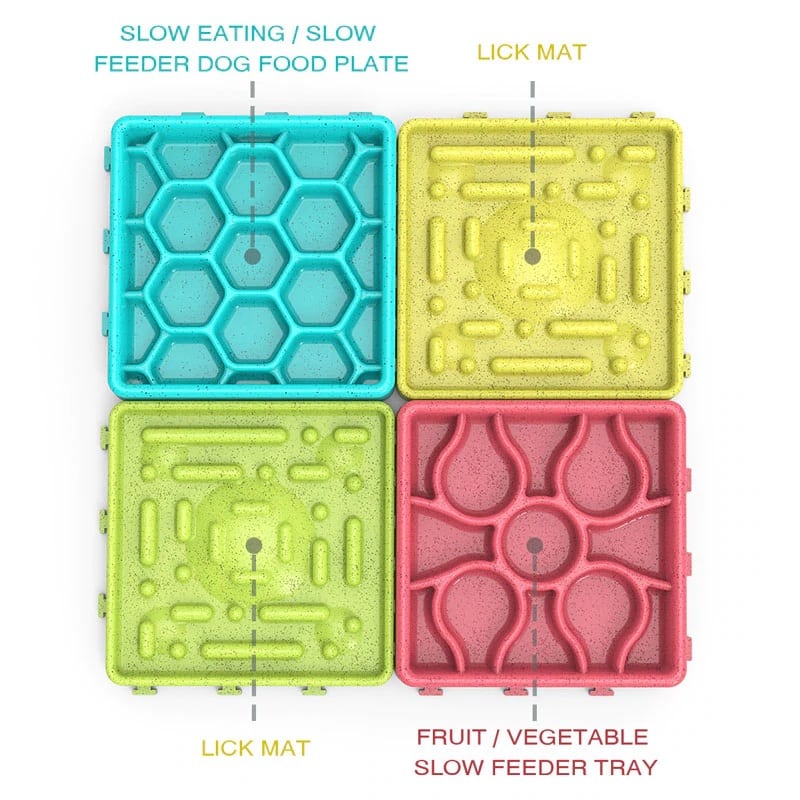
As a result, the breed, like other breeds, has struggled a huge hit and Great Danes have suffered as a result. The way a dog is bred defines the important trait of their temperament.
Why are So Many Great Danes So Anxious?
Great Danes are NOT meant to be an anxious dog. So many dog breeds have anxiety wired into their genetics.
If your Great Dane is anxious, suffers from separation anxiety or demonstrates destructive behavior that is often unexplained, they could have been bred with genetics that leads them to this issue.
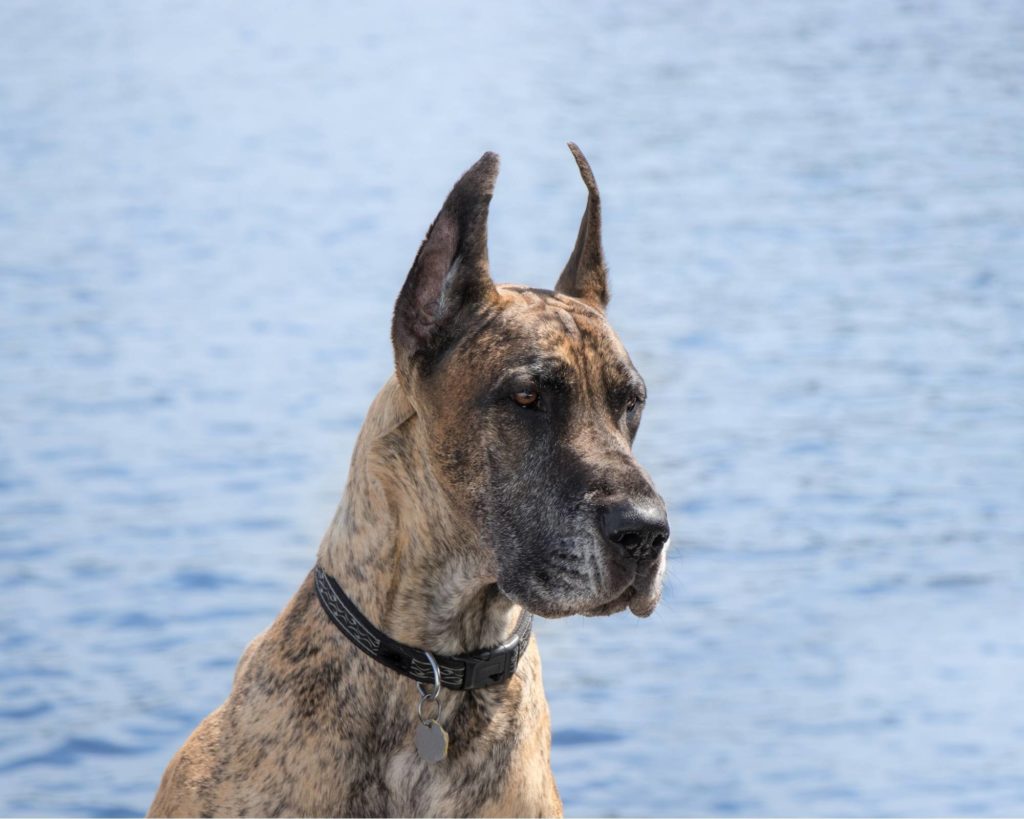
Finding a Quality Great Dane Breeder
If you are looking to add a Great Dane to your family, you should consider the history of how they were bred. Speak to any potential breeders before you buy a dog.
Euro Danes: A Big, Droopy Problem
What Does Euro Mean in Great Danes?
Examine possible dog breeder red flags, such as selling dogs online, not letting you meet the dog or the dog’s parents before you purchase said dog, having other dogs in their family who are sick / died early, not conducting proper health testing on their dogs, or more.
We have an abundance of information on bad breeding in regards to Great Danes — do your research BEFORE you bring home a Great Dane.
There are also an abundance of resources on the American Kennel Club website, however just because a dog is registered as ‘AKC’ with the American Kennel Club does NOT mean that it is a well-bred dog.
Six: Great Danes Think Everyone is Their Friend
Great Danes, when properly bred and socialized, LOVE other people. Great Danes are so lovable, in fact, that this is one reason that they do not make good guard dogs.


Compared to any other dog, a Great Dane is generally significantly more friendly and happy to meet new people than a different dog.
Once trained and socialized, try taking a Great Dane into a public, dog friendly location.
Your Great Dane is going to feel like the life of the party and be excited as can be.
Seven: Having a Guard Dog is a Liability
Many people want to have the ‘best guard dog’ to keep their family safe. Also, people often stumble upon Great Danes because they are one of the largest dog breeds.
However, good guard dogs start training almost immediately after they are born with smells and desensitization from their mothers breastmilk, etc.
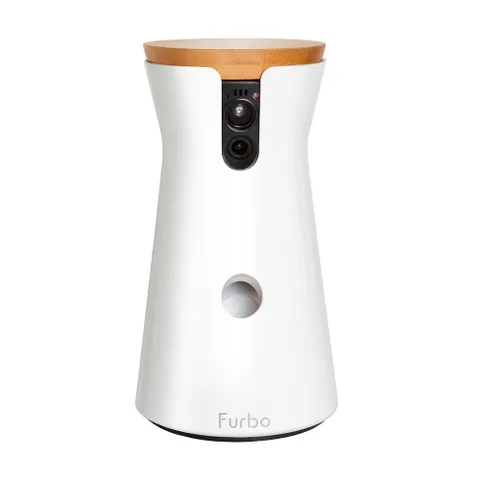


Unless you are working with a highly trained professional who has extensive experience with guard dogs, it becomes an extreme liability.
Guard dogs are trained to know the difference between a threat and someone who is not a threat. An untrained guard dog does not know the difference — to them, everyone is a potential threat and they will attack accordingly.
It is important to remember that even if you have the ‘best guard dog in the world’, it is still your responsibility as an owner to train your Great Danes, and other dog breeds according to the way society operates.
Eight: Great Danes Are Not the Right Size for Guard Dogs
When it comes to guard dogs, big is not necessarily better.
Although great Danes are often regarded as some of the best guard dogs due to their impressive size, they can actually be quite poor guard dogs in certain scenarios.
For one thing, a male Great Dane is far and away the tallest dog breed, which means that it stands out from other guard dogs and may attract unwanted attention from thieves and other intruders.
Good guard dogs have extremely quick agility, which typically means they need to be smaller and quicker on their feet than a Great Dane.





All in all, if you’re looking for an effective guard dog, then the wise choice may be a smaller dog, rather than opting for one of the towering great Danes.
Conclusion:
I will state that Great Danes, although may be one of many protective dog breeds, do not make good guard dogs. Great Danes are a lovable and powerful breed of dog but are not easy to train to be guard dogs.
Choose a dog from a breeder wisely, as poorly breeders is often how Great Danes suffer from anxiety and infliction.
Bad Breeders
Scam Breeders: What to Look For
Breeders: Shady Business
Should I Choose a Breeder or Rescue?
Choosing a Dog From a Show Breeder
What Makes a Breeder Good?
Great Danes are are very friendly and loving, which makes them great family pets but again, not good guard dogs.
In final thoughts, Great Danes certainly CAN be trained to be a guard dog, but for the most part, they do not serve as good guard dogs.

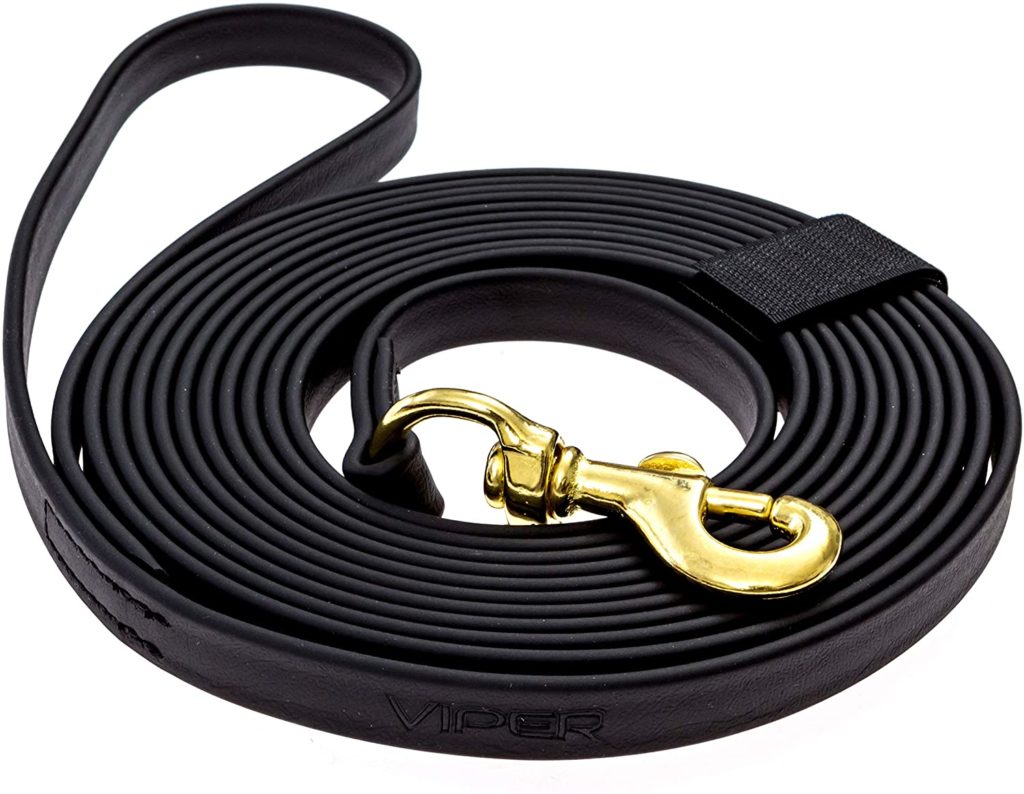

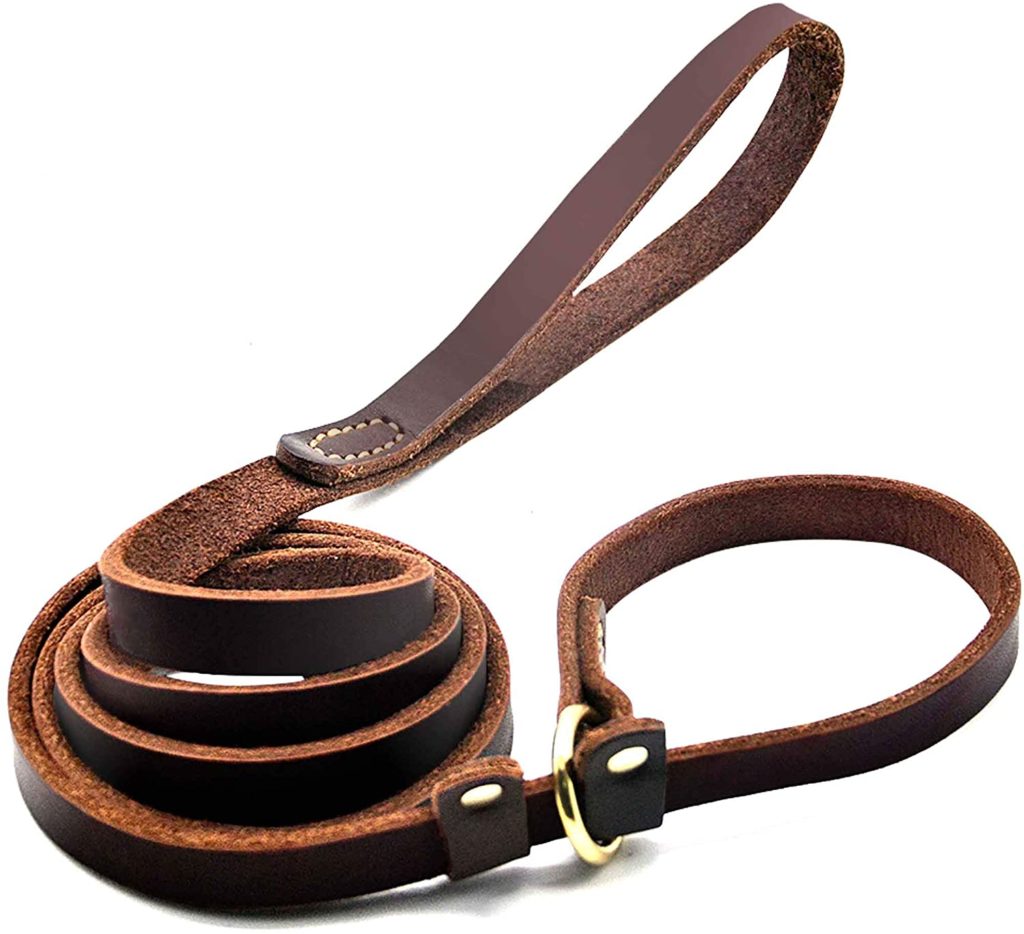
Leave a Reply